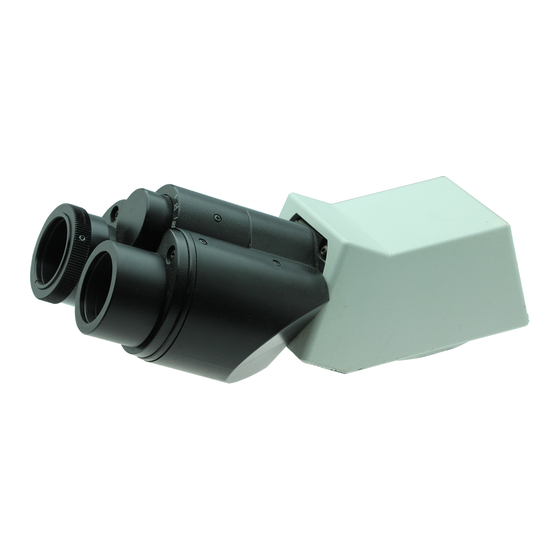Olympus BXFMA-F Manual de instruções - Página 14
Procurar online ou descarregar pdf Manual de instruções para Microscópio Olympus BXFMA-F. Olympus BXFMA-F 36 páginas. Motorized illumination system with motorized focusing unit

USING THE CONTROLS
4-1 Power Supply Unit TH4
}Please also refer to the separate instruction manuals. Note that, when the BX-UCB control box is used to supply the lamp
power, the brightness should be controlled from the PC.
4-2 Motorized Illuminator with Motorized Focusing Unit BXFMA-F
}The following description deals with the standalone operations in the system without using a PC.
@
³
6
4
10
²
Fig. 4
7
5
Fig. 5
1
Selecting the Observation Light Path
Press the BF button 1 or DF button 2 of the hand switch to set the
mirrors for the desired observation system.
BF: Reflected light brightfield light path
DF: Reflected light darkfield light path
2
Centering the Field Iris Diaphragm (FS)
}Since the field iris diaphragm is usually used in the fully open condition,
the illuminator employs a method in which the auxiliary lever 4 is inserted
as required.
1. Press the BF button 1 of the hand switch to select the reflected light
brightfield light path.
2. Press the objective button 3 of the hand switch to engage the 10X
objective in the light path, place the specimen on the specimen table
and bring the specimen into approximate focus.
3. Screw the field iris diaphragm auxiliary lever 4 into the illuminator and
pull the lever to stop down the field iris diaphragm.
4. Insert the Allen screwdriver, provided with the illuminator, into each of the
two FS centering screws 5 and turn them until the field iris diaphragm
image becomes concentric with the field iris.
5. While pushing in the field iris diaphragm auxiliary lever 4, open the field
iris diaphragm until the field iris diaphragm image is inscribed with the
field of view. If their centers are deviated, center the field iris diaphragm
again.
6. Open the field iris diaphragm until the field iris diaphragm image circum-
scribes (becomes the same size as) the field of view.
(Fig. 4)
(Figs. 4 & 5)
